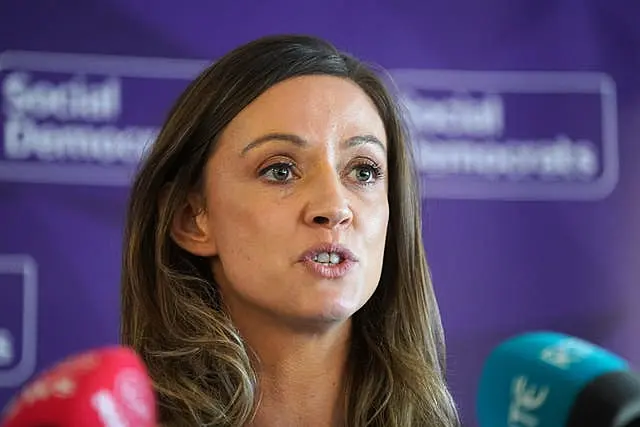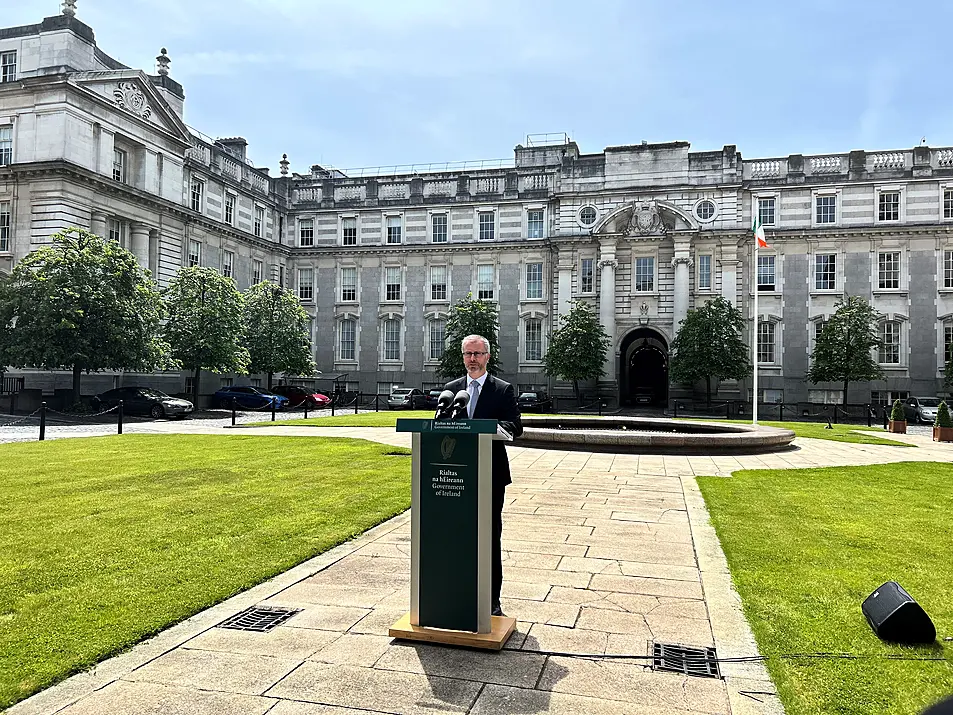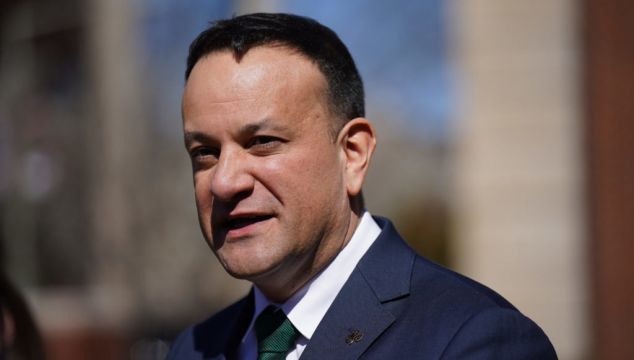Ireland is struggling to deal with the scale of the refugee crisis that has swept Europe, the Taoiseach has said.
Leo Varadkar said while issues have arisen with accommodation shortages and some anti-immigration protests, he insisted the vast majority of the near 100,000 people who have arrived in Ireland in the last year have been housed and welcomed by local communities.
His comments in the Dáil came as Minister for Equality and Integration Roderic O’Gorman said the latest number of international protection applicants without accommodation stood at 259 on Tuesday.
Mr O’Gorman said the number of people on the “unaccommodated list” has fallen from about 500 earlier in the month due to the reopening of Dolcain House in Clondalkin, which is used to house applicants.
He said that was “still too high” and said more accommodation would come online over the next week.
Speaking to reporters at Government Buildings, Mr O’Gorman also confirmed his department continues to look at floating hotels, or “flotels”, in its response to the accommodation shortages.

Later, during Leaders’ Questions in the Dáil, Social Democrats leader Holly Cairns pressed Mr Varadkar on the issue as she expressed concern at recent violence around anti-immigration protests in Dublin and the separate blockade of asylum seeker accommodation in Inch, Co Clare, by some residents.
“There is always a place in a democracy for peaceful protest and people have a right to have their voices heard,” said Mr Varadkar.
“But engaging in violence, engaging in intimidation, engaging in racism, and restricting the freedom of others in a public place is not a legitimate form of protest and I want to be very clear about that and I think the House stands united on that.
“I think when it comes to this matter, we should never lose sight of the bigger picture. We’re facing a major refugee crisis not just here in Ireland but all across Europe.
“We would have seen in most years (that) 3,000 to 4,000 people come to Ireland each year looking for protection, in the past year it’s been closer to 100,000, most fleeing the war in Ukraine, but a very large number of people seeking international protection from other parts of Europe and outside of Europe, as well, and we’re struggling to deal with it.
“But I think we’ve done a lot. Almost all of those 100,000 people who have come to our country in the past year have been provided with food, shelter, accommodation, access to health care, access to housing, access to education and, in many cases, they’ve been provided with employment as well.
“And I want to particularly thank the gardai for the work that they’ve done in managing these protests, a very difficult job in a difficult situation and also to recognise the communities that have accepted newcomers into their communities.”

He added: “More than 100 new centres have been established to accommodate people from overseas; in the vast majority of cases it’s gone well, there haven’t been protests and communities have accepted those newcomers.
“But I accept in some places things have fallen down, and we need to do better. And we all need to do better in that regard.”
Ms Cairns said there was a need to provide more information to local people on how they can support refugees moving to their areas.
“I want to commend the actions of local communities all over the country who’ve already welcomed tens of thousands of refugees into their areas,” she said.
“Many have and are setting up welcoming committees to help integration in their communities. But they can’t do this work all alone, Taoiseach, that’s why we have to see communication from Government with communities, not to offer vetoes, but to outline supports and provide resources that will help with integration.
“Because, Taoiseach, what we’re learning so quickly is that without any communication there’s a huge void and that void is being filled with misinformation and the consequences of it are horrific.”

Earlier, minister O’Gorman said he had “engaged significantly” with the Garda over the role of policing protests and blockades against migrant accommodation.
He said: “International protection applicants on the street are extremely difficult for An Garda Siochana to protect, so the more accommodation that we can open, the more people we can move into accommodation, the safer we can keep people.”
Mr O’Gorman said blockades had moved beyond legitimate protest.
He said: “I don’t believe blockading is acceptable, I don’t believe people in masks are acceptable.
“I think that goes far beyond any element of legitimate protest and I think it is disturbing to see people kind of wrapping the tricolour around themselves, because I don’t believe that’s what the very significant majority of Irish people believe in either.”
Asked if he agreed with Garda Commissioner Drew Harris that Ireland had not seen the same rise in the far right as other European countries, Mr O’Gorman said those groups had not seen the same political success as elsewhere.
He added: “But, undoubtedly, there is an organised and organising far-right movement in our country.
“I think it does remain small and they can use social media to overstate their influence, but it does exist in our country.
“I think it’s important that all of us across the political spectrum work and, I suppose, to ensure that we don’t see them making the sort of gains we’ve seen and converting this kind of initial sense into a political gain.”

Earlier, a Sinn Féin TD accused the Government of “appalling” lack of engagement with locals about migrant accommodation but said “nobody should have a veto” on who moves into their community.
David Cullinane said: “The lack of engagement with communities at times has been appalling – and I don’t believe that anybody should have a veto on who moves into a community.
“But there’s a difference between having a veto and consultation and what I would call engagement, which is sharing information and informing local communities and local politicians as to what’s happening.
“The lack of that engagement also creates an unnecessary frustration that wouldn’t be there if the Government was doing its job right.”
Mr Cullinane condemned attacks against migrants and people who are seeking international protection.
He said: “There is absolutely no place for intimidation of people who are coming here seeking international protection.
“I genuinely believe it is fundamentally wrong and it should not be happening.”
Mr Cullinane said it was also wrong to intimidate politicians, gardai and protesters campaigning for rights of migrants.
But he added: “But that doesn’t excuse the Government, in my view, from mistakes that they’re making.”
Mr O’Gorman said his department has engaged in 25-30 meetings with local representatives and residents’ groups about the accommodation of international protection applicants since January.
He said: “We have significantly enhanced our ability to engage and having minister (Joe) O’Brien in the department has been hugely important in that.”
Mr O’Gorman said the Department of the Taoiseach is also working on a wider national communications strategy.







